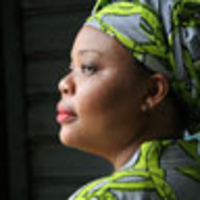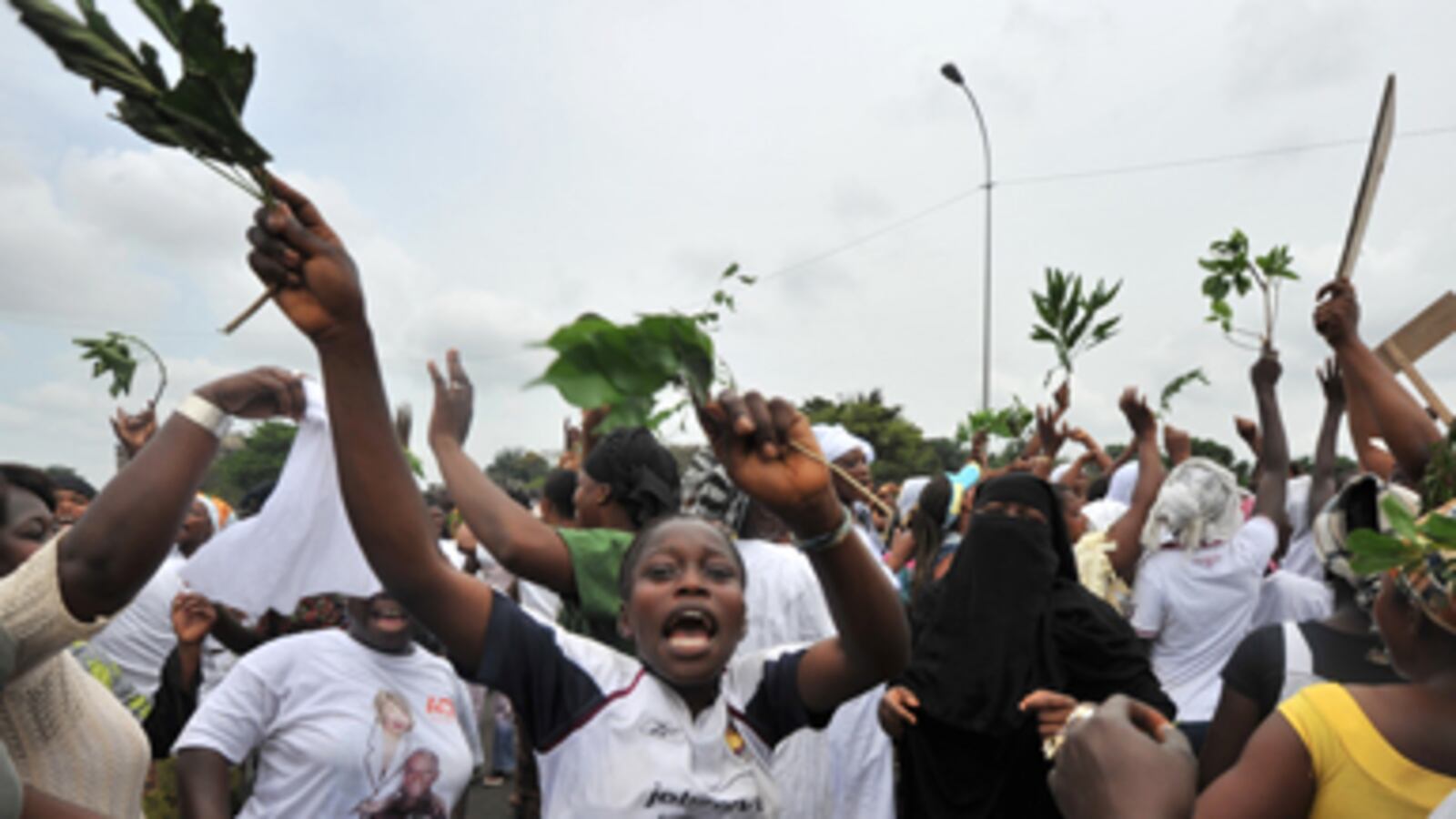On March 3 2011, hundreds of women gathered to protest peacefully in Cote d’Ivoire to end the political stalemate and the worsening security situation. Unarmed, chanting peacefully. What were they thinking? I guess, they thought since women of Liberia protested peacefully and contributed to the end of their war, which was bloodier than theirs, they were in a better position to demand peace to preserve their beautiful country. But it ended in blood, with more than six sisters paying the ultimate price.

As I watched the video on CNN, I recognized the similarity of their dress code, songs, and chants for peace to what we did in Liberia years ago. They were dressed in modest costumes—head-ties, some white T-shirts, palm branches, and no jewelry. Muslim and Christian women hand in hand, marching together for peace. I said to myself, as I watched those women, this could have been me, Sugars, Asatu, Vaiba and Etty…. Except that these were our neighbors—women of Cote d’Ivoire. These were the same women we danced with less than two years ago, when we lobbied the first lady, Simoen Gbabgo, for peaceful elections and a peaceful settlement to all elections related conflict. She promised us that she and the women of Ivory Coast would ensure that peace prevailed.
Even as I write this piece, I can’t help but wonder how Gbabgbo is feeling as she watches her husband gun down her own sisters, mothers, and grandmothers? I recalled Gbagbo proudly showing off her granddaughter to a group of us she hosted during our campaign for a peaceful election in Cote d’Ivoire. How can she sleep, eat, and play with her grandchildren when her husband is responsible for other children losing their mothers, grandmothers, and aunties?
I am at a loss as to how to engage Cote d’Ivoire now. My heart weighs me down as I see the price for peace get higher, fatal, and complicated day-in-day-out in West Africa, especially for women who are determined to champion the struggle for lasting and just peace.
Six of our peace activist sisters have been gunned down in Cote d’Ivoire, apparently, to destroy women’s resolve for peace. Gbagbo and his killers failed to realize just one thing—the women of Cote d’Ivoire are not alone. They belong to a wider, more determined army of women peace activists in West Africa and across the world. He and his heartless killers will not escape justice for the lives of those women and the thousands they continue to gun down to hold on to power. Women of West Africa are determined to rise to the occasion.
By this, I call on all sisters to break the silence on Cote d’Ivoire. The time is now to rid yet another West African country of a tyrant and a psychopathic leadership. This 100th anniversary celebration of International Women’s Day should go down in history as the clarion call to all sisters. We must mourn for the sisters but our mourning should not be a sorrow of victims and the vanquished. It must be tears of courage, tears of indignation. This roadblock on our sojourn for lasting peace, democratic freedom, and civility must also be removed collectively. This, too, must end in our triumph.
The Liberian peace and women's rights activist Leymah Gbowee is The Daily Beast's Africa columnist. As war ravaged Liberia, Leymah Gbowee realized it is women who bear the greatest burden in prolonged conflicts. She began organizing Christian and Muslim women to demonstrate together, founding Liberian Mass Action for Peace and launching protests and a sex strike. Gbowee's work in helping to oust Charles Taylor was featured in the documentary Pray the Devil Back to Hell.






